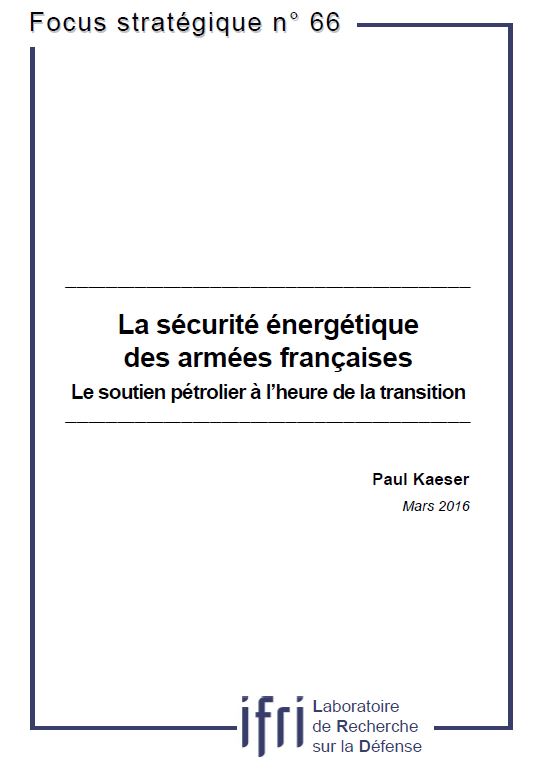La sécurité énergétique des armées françaises. Le soutien pétrolier à l’heure de la transition

Ever since its inception on the eve of World War One, the concept of securing fuel supply has consistently proven its vitality to military operations.

In France, this mission is handled by the Service des Essences des Armées (SEA) since 1945. By controlling the chain of fuel supply, the SEA has been able to serve as a key organization in supporting French armed forces integration within NATO as well as their operations overseas. However, the SEA is now facing new challenges due to both external hazards (both structural and contextual) and internal vulnerabilities which combine into a systemic “energy risk” that needs to be addressed. In order to do so in the near future, French armed forces will have to fully embrace the challenges of energy transition, so as to turn internationally recognized concepts such as “Green Defense” into operational reality.
This content is available in French: La sécurité énergétique des armées françaises. Le soutien pétrolier à l’heure de la transition.
Related centers and programs
Discover our other research centers and programsFind out more
Discover all our analysesMapping the MilTech War: Eight Lessons from Ukraine’s Battlefield
This report maps out the evolution of key technologies that have emerged or developed in the last 4 years of the war in Ukraine. Its goal is to derive the lessons the North Atlantic Treaty Organization (NATO) could learn to strengthen its defensive capabilities and prepare for modern war, which is large-scale and conventional in nature.
"Iron Swords" A Military Analysis of Israel's War in Gaza
On October 7, 2023, Hamas' attack, dubbed “Al-Aqsa Flood,” caused a major shock and led Israel to launch the longest war in its history. Operation “Iron Swords” was notable for its unprecedented intensity, both in terms of the massive ground forces deployed and the firepower used.
Saudi Arabia’s Nuclear Temptations. Lessons Learned from Regional Instability
Saudi Arabia’s integration in the international arena and regional stability, notably through reducing its dependence on fossil energies, are crucial elements for the success of the Kingdom’s Vision 2030, the Crown Prince’s top priority. However, Mohammed bin Salman’s declarations in 2018 and 2021, indicating that “if Iran develops a nuclear bomb, we will follow suit as soon as possible”, combined with the recent strikes on key Iranian nuclear facilities, do not bode well for the future of the Kingdom, the region and the non-proliferation regime at large.
The Future of Air Superiority. Command of the Air in High Intensity Warfare
Air superiority, understood as control of the air, is a cornerstone of the Western art of warfare. It is a decisive condition, albeit not sufficient by itself, to achieve military victory, as it enables the concentration of air power toward the achievement of wider strategic objectives and protects other components from unbearable attrition levels. It is best achieved through the offensive use of air power in a joint effort to neutralize the enemy’s air power.










